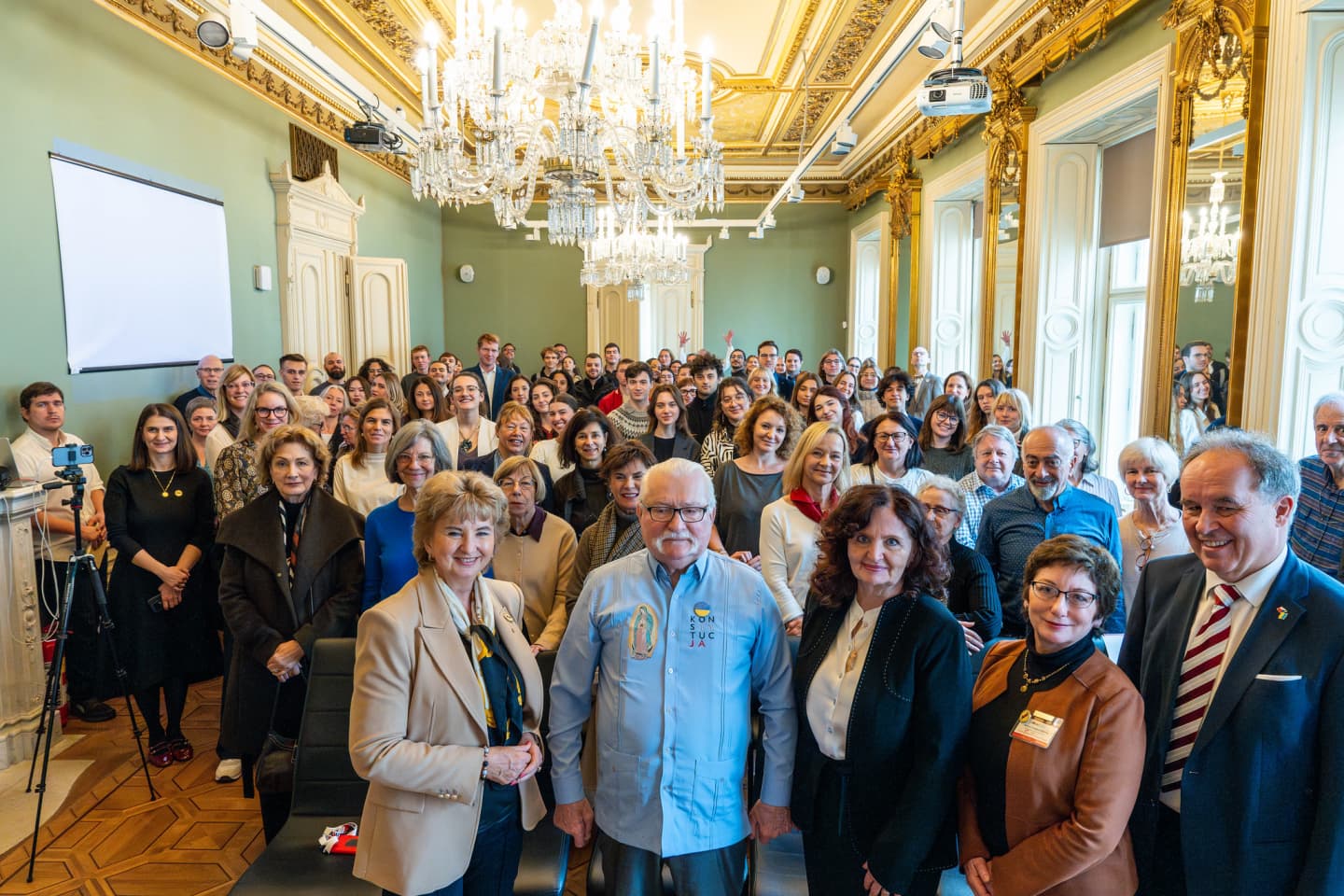Wałęsa Visits AAU to Discuss the State of Freedom & Democracy

On November 14, 2024, Anglo-American University (AAU) hosted former Polish president and Nobel Peace Prize laureate Lech Wałęsa for a discussion on the fight for freedom and democracy and the challenges facing Europe and the world.
After an introduction by President Jiří Schwarz, who credited the guest speaker with “turning our hope into a reality”, Wałęsa turned to address a room full of attendees, which included students, invited guests, staff, and faculty.
With the assistance of a translator, Wałęsa began by expressing his gratitude for the opportunity to address the audience, many of them young people, promptly noting that the achievements of subsequent generations would ultimately validate the efforts and sacrifices of his own. In this latter category, Wałęsa cited the Solidarity (Solidarność) movement, which he co-founded and led, successfully challenging communist rule in Poland and inspiring democratic transitions across Central and Eastern Europe.
“It is very important to me that the generation that came after Solidarity is successful,” Wałęsa said.
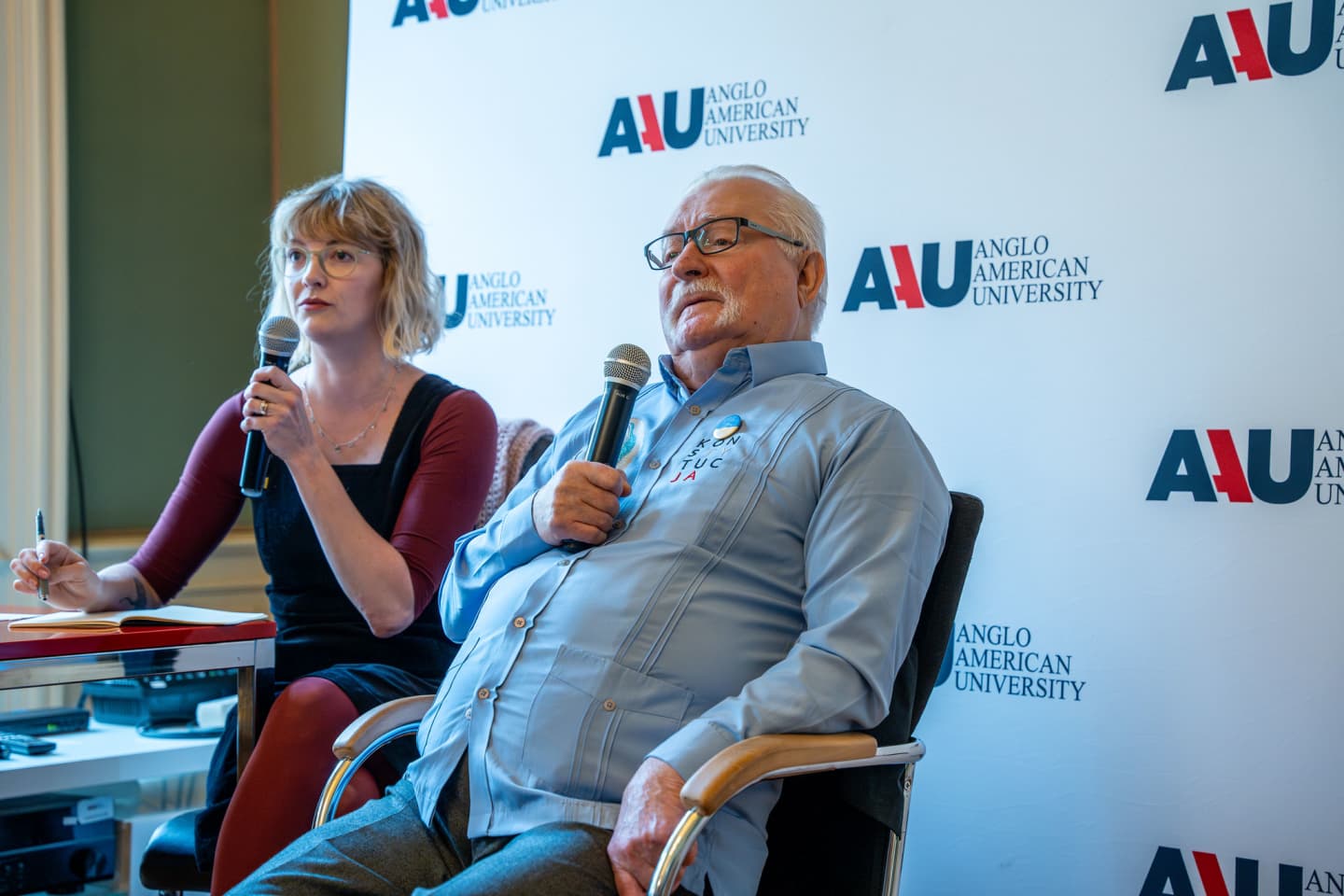
Urging the audience to consider how historical lessons could be applied to avoid repeating past mistakes, Wałęsa stressed the need to elevate discussions to a global level. He pointed to Europe’s lack of unity as a significant issue, suggesting that common ground and shared values must be established to create a cohesive and effective political and economic framework across countries.
Wałęsa addressed the challenge of choosing an economic system for a united Europe, contrasting communism and capitalism. While the former may appear attractive, with its focus on equality and shared prosperity, he argued it to be unfeasible in practice, as history has demonstrated. He strongly urged listeners to embrace capitalism as the only viable alternative.
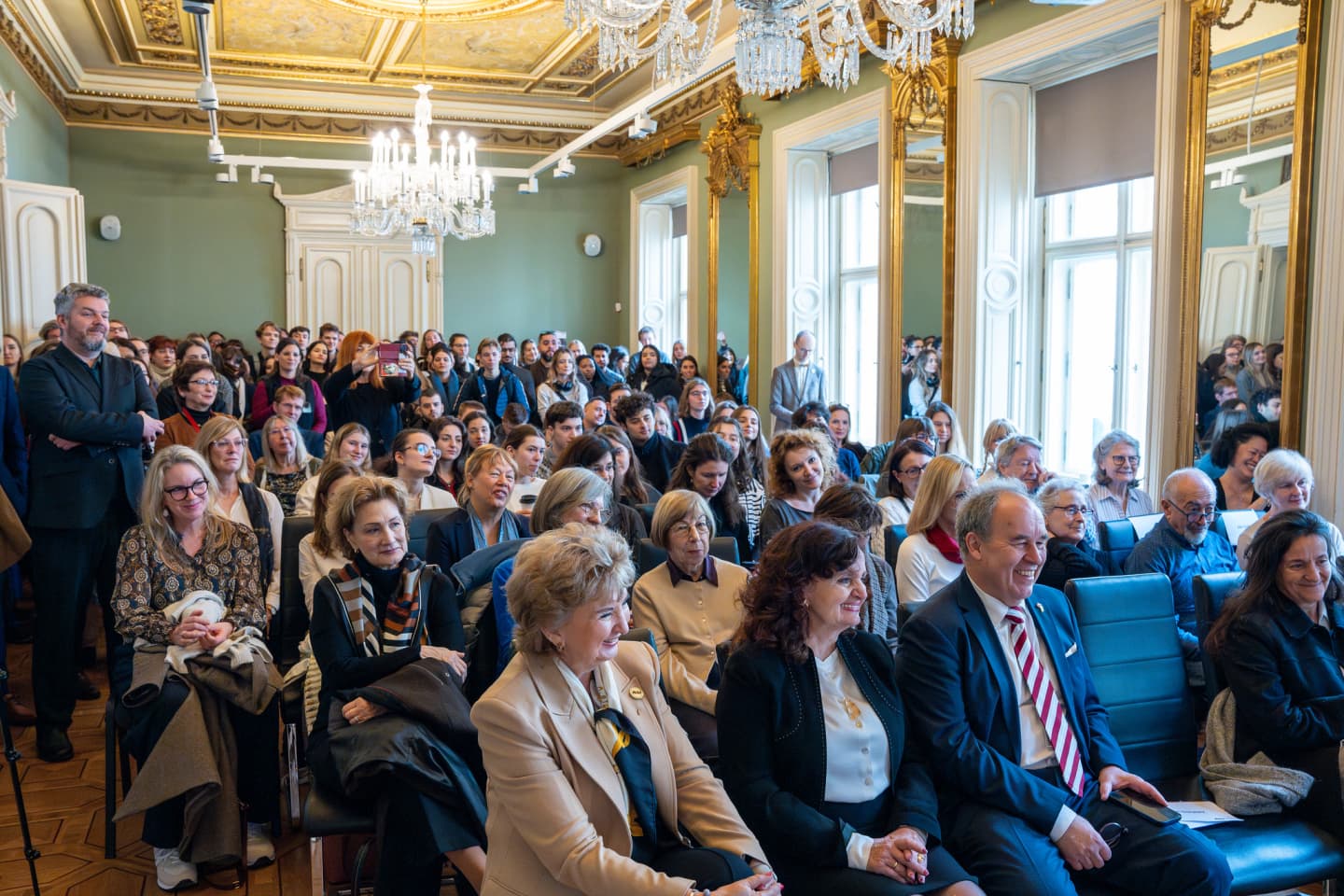
Wałęsa called for European nations to move beyond rivalry and work toward building a unified society, stressing that the era of isolated states divided by borders has effectively ended, thanks to advancements in technology and globalization. Recognizing the world has yet to establish a new order to replace the old systems, he questioned the relevance of current political structures, asserting that democracy, in its true form, can scarcely be found today. Mentioning the recent U.S. elections, Wałęsa expressed concern about the public’s waning belief in democratic processes.
“People do not believe in democracy anymore, and they do not fight for it,” he stated.
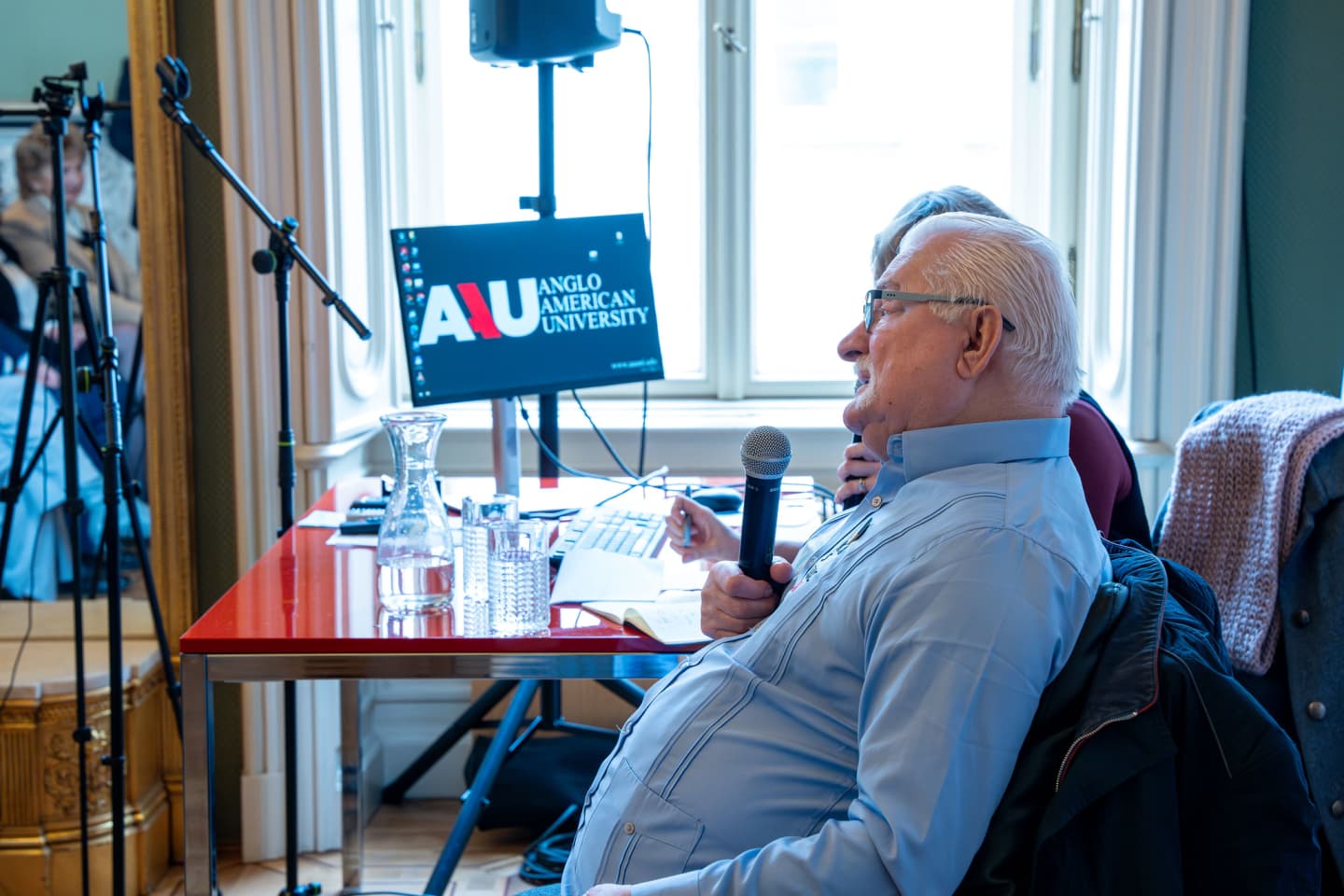
To address this declining trust in democracy, Wałęsa proposed a number of reforms. He advocated a 10-year term limit on political officeholders to prevent abuses of power, referencing the ongoing conflict in Ukraine as an example of the consequences of unchecked leadership, and suggested making the finances of political parties fully transparent to foster public trust. Wałęsa argued that such measures, combined with protocols for removing elected officials who fail to serve effectively, would help begin to rebuild confidence in democratic systems.
Looking back on the record of territorial expansion, Wałęsa said he observed that, at the dawn of the 21st century, many nations began shifting from brute force to more democratic methods of extending influence. But with Russia’s invasion of Ukraine, he posed the question of whether a forceful or peaceful approach would triumph as the prevailing practice, noting that, while the Solidarity movement had demonstrated the effectiveness of nonviolent resistance, the world seems to have forgotten.
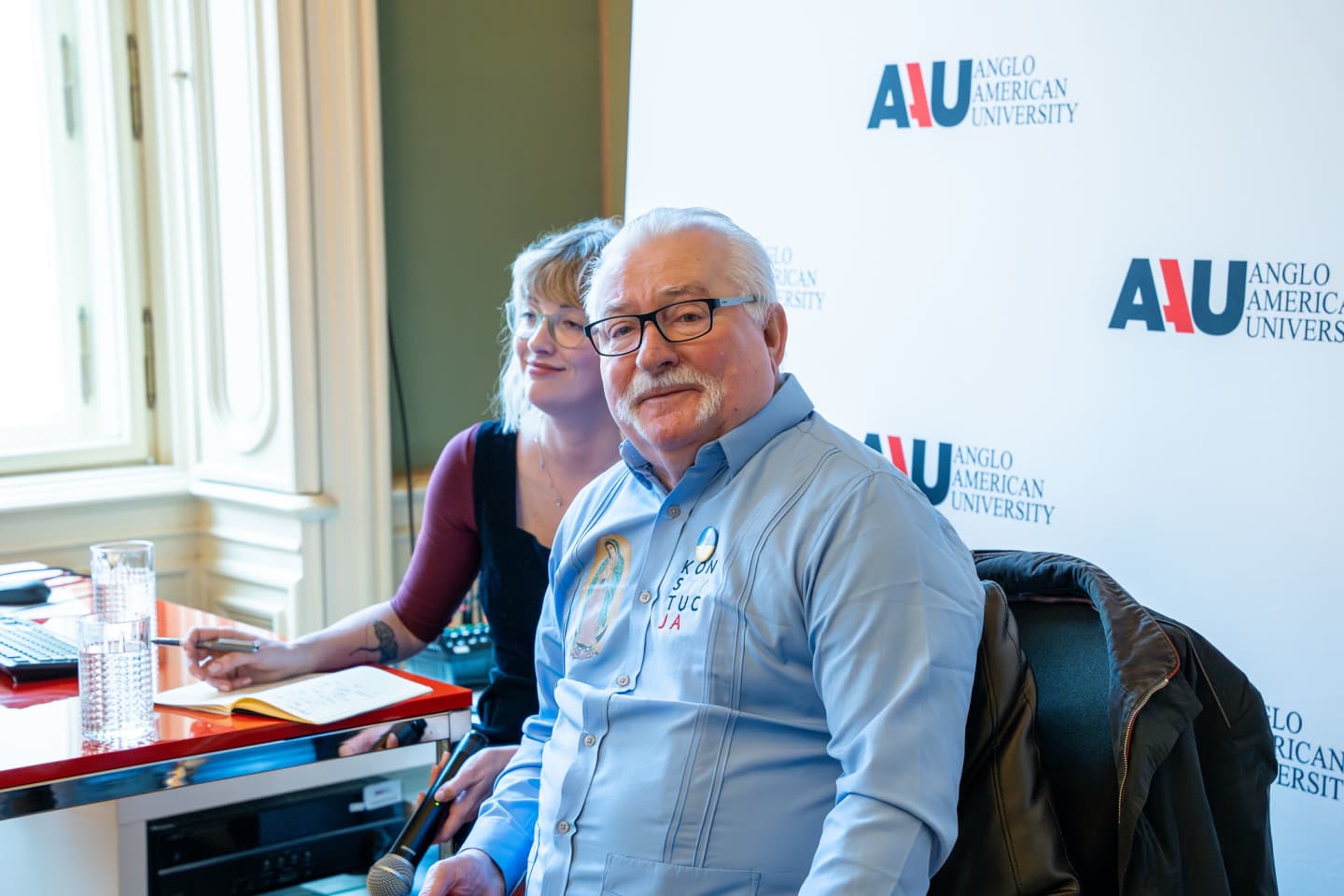
Wałęsa concluded his talk by urging younger generations to meditate on these pressing issues and actively participate in solving them, rather than remain bystanders, lest the foundations laid by his generation be left to crumble.
“We have a great chance to achieve peace and prosperity for everyone, but it will not happen by itself. We have to do it,” he said.
A period of Q&A followed, during which Wałęsa invited the audience to pose difficult questions and to offer answers of their own concerning the challenges he had outlined.
